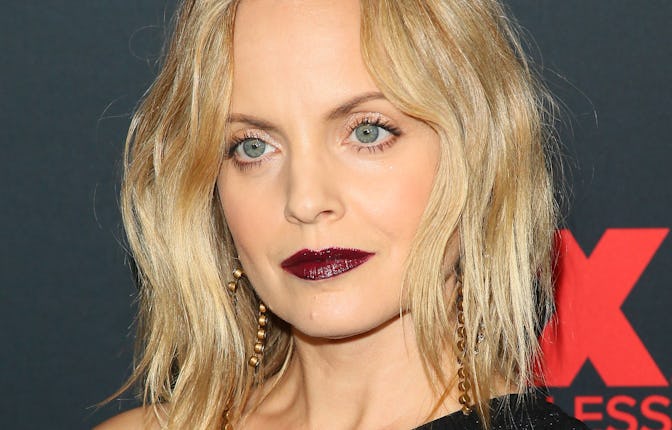Mena Suvari's abuse story underscores what Hollywood does to young girls
In a new interview, Suvari detailed the sexual and emotional abuse she endured during her career.

Warning: This article contains mentions of sexual abuse.
Mena Suvari is unafraid to bare all about how coming of age in Hollywood as a hyper-sexualized starlet scarred her. The actress first broke through as Angela in the controversial film American Beauty, in which she was the teenage fantasy of a middle-aged man (Kevin Spacey). Suvari’s own life experiences and the internalization of Hollywood’s expectations of her to be a sex symbol from a very young age eventually led her down a dark path. She finally spoke about it in her book, The Great Peace, which discusses at length the traumas she has endured: from being raped at 12 years old by her brother’s friend, to predatory relationships once she was famous, to the drug addiction that she relied on as a coping mechanism. To celebrate the one-year anniversary of the book’s release, she gave an interview to The Guardian and went into further detail about sexual abuse, manipulation in relationships, and society’s perceptions.
With her son only having been a few months old at the time of the book’s release, Suvari admitted that she was in the throes of postnatal depression during her book tour. But she said that writing the book was also therapeutic. “I needed to express myself. I needed to purge this in order to move on,” she said. “…I very much wanted to let it go.” And yet the book took on a life of its own, as people began reaching out to her to thank her for writing about experiences that they identified with. “It was bittersweet because it felt beautiful to feel seen and heard, but it was heartbreaking to hear that others had identified in similar ways,” she said. “I didn’t want that for them, but overall I feel very proud. ... I always hoped that [the book] could help create some kind of change and initiate further conversation.”
Suvari’s experience tells a lot about what happens to young girls who are pressured by society to appear grown up and sexy. When she was told at 12 during a modeling shoot that she looked 18, she feels that it opened the door for men to prey on her. She was already reeling from the sexual abuse she had faced at home; when the assaults led to a bladder infection, a doctor prescribed contraception without inquiring as to what was happening to her. She began using methamphetamines to numb the pain as older men coerced her into nude photoshoots and sexual relationships, even though they were supposed to be professional acquaintances.
Eventually, Suvari ended up in an abusive relationship with a lighting technician who called her names and forced her into unwanted sex acts that eventually made her need medical treatment. Ultimately he was convincing her to recruit women on set for threesomes, an experience that left Suvari “mortified.” “I was not being loved. I was just a body, a receptacle for his desires,” she wrote in her book. She recalls running into one of the women in question years later. “‘I want you to know that I never wanted to do any of those things,’” Suvari told her. “She was surprised. She said, ‘Oh, he told me you wanted to do that.’ It was a huge eye-opener for me, how I was being manipulated and I had no idea. The circumstances had been created for me, and I was just swallowed up by it.”
The abuse made work a refuge for Suvari, and she tapped her into characters like Angela in a dark way. She recalls of filming American Beauty: “I identified with Angela. I knew how to play that role, because I was so schooled in it. ‘Oh, you want me to be sexually attractive?’ Done. I felt unavailable in a million other ways, but I knew how to play that card.” She would leave the set, where she felt adored, to her home, where she was in “the worst relationship of my life, where I was being extremely abused. It was very dark for me at that time, [and the film] felt like a respite, because I could go to work and be important there. I wasn’t called a ‘retard’ and an ‘idiot.’”
Ultimately Suvari reclaimed her autonomy. Over the years she has embraced a makeup-free Instagram presence that is a rebuff of Hollywood, and she had her breast implants removed. Writing her book was most therapeutic of all, though. “I think the biggest thing is that, for me, I felt like I wasn’t allowed to consider a lot of these moments as abuse or trauma, because I always excused it,” Suvari said. “That’s a big part of survival – I had to learn how a lot of things served me then, and they don’t have to serve me anymore.” Though she has enlisted in professional therapy, she admits that it’s still a “daily battle” to get through it. “I feel like stuff never really goes away, you just garner a new perspective on it, and a new patience for myself and more compassion.”